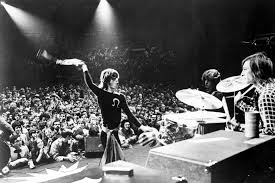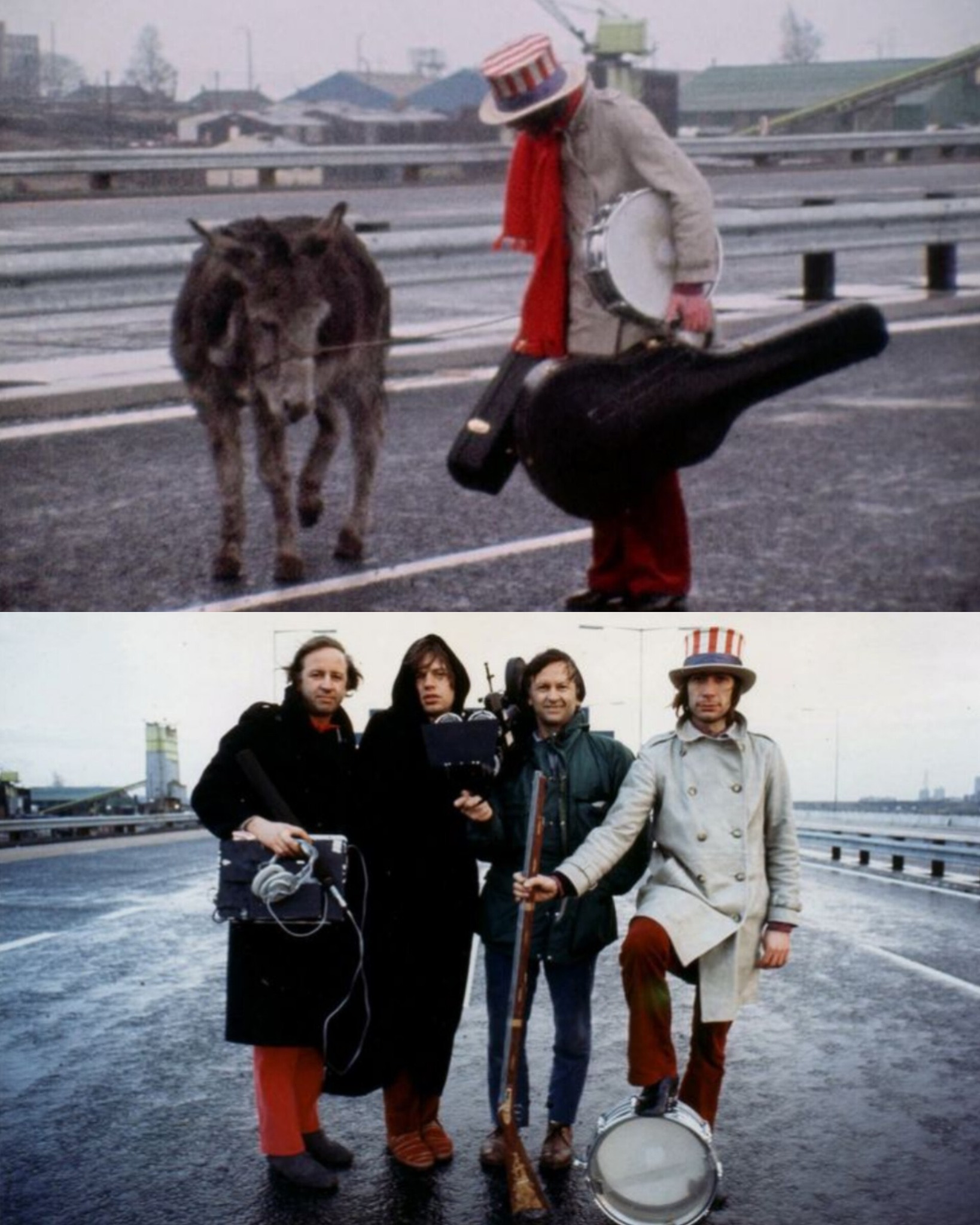Is a raw, unflinching documentary capturing The Rolling Stones’ 1969 U.S. tour, culminating in the infamous Altamont Free Concert. Directed by Albert and David Maysles along with Charlotte Zwerin, the film is both a celebration of rock music and a sobering chronicle of a cultural era’s collapse.
The documentary begins with the Stones riding high from their successful Madison Square Garden concerts, promoting the newly released Let It Bleed album. As they plan a free concert to thank their American fans, the mood shifts. The Altamont Speedway Free Festival, intended as a West Coast answer to Woodstock, becomes a logistical and moral disaster. The filmmakers juxtapose electrifying performances—like “Sympathy for the Devil” and “Gimme Shelter”—with the chilling deterioration of crowd control and increasing violence.



Central to the film is the death of 18-year-old Meredith Hunter, who was fatally stabbed by a Hells Angels member hired as event security. His murder is caught on camera, and the moment is revisited in the editing room, where Mick Jagger and others silently watch the footage. This sequence—tense, uncomfortable, and ethically complex—anchors the film’s core message: the utopian 1960s dream had dark, real-world consequences.

What sets Gimme Shelter apart is its cinéma vérité style. There’s no narration—just candid moments, behind-the-scenes tension, and audience chaos that speak louder than commentary. The film doesn’t editorialize, letting viewers draw their own conclusions about responsibility, naiveté, and the line between performance and reality.
More than a concert film, Gimme Shelter is a cultural autopsy. It captures the end of an era, marking the death of the ’60s counterculture idealism with gripping immediacy. It’s both a historical document and a haunting reminder that even music—meant to unify—can’t always transcend chaos.

